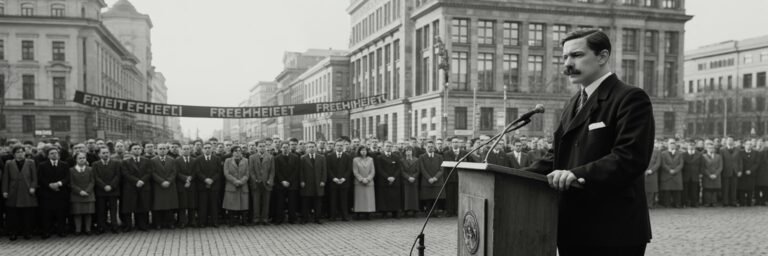INTRODUCTION
Political assassinations have long been a tool of power, strategy, and upheaval; written into the annals of history as turning points that have often reshaped world affairs. From Julius Caesar falling to the brutal knives of his senators in Rome, to the fatal shooting of Archduke Franz Ferdinand that unleashed the horrors of World War I, many of these incidents remain drenched in speculation and intrigue. This paper seeks to dissect the shadowy narratives behind these political assassinations, peeling back the layers of mainstream interpretation to reveal the lesser-known theories and lingering controversies that fuel academia and popular culture alike.
HISTORICAL BACKGROUND
Politics has, since its inception, been a ruthless game of power and subterfuge. This ruthless game often climaxed in the dastardly act of assassination – the calculated elimination of leading figures. Historical examples are manifold. The murder of Julius Caesar in 44 B.C saw an end to his dictator-perpetuo reign. The succession crises and power struggles of imperial Rome were punctuated by assassinations – Caligula and Claudius being notable examples. In the medieval period, assassinations continued to shape the course of history, such as the murder of Thomas Becket in 1170, which had profound effects on relations between church and state in England.
However, the practice did not cease in the modern era. Political assassinations in the 20th century, such as those of Archduke Ferdinand by Gavrilo Princip in 1914, Leon Trotsky in 1940, Louis Mountbatten in 1979, Olof Palme in 1986, and the infamous assassination of John F. Kennedy in 1963, have been turning points in world history, sparking wars, political upheavals, and societal changes.
THEORIES AND INTERPRETATIONS
Each assassination is typically accompanied by theories that attempt to explain the motives, methods, and consequences of these acts. In some cases, these theories are accepted by mainstream historians. For example, the consensus view is that Archduke Franz Ferdinand’s assassination by a Serbian nationalist led directly to World War I. Similarly, there’s general agreement that John Wilkes Booth’s assassination of Abraham Lincoln was motivated by Booth’s fanatical support for the Confederacy.
However, many assassinations also attract alternative theories. The assassination of John F. Kennedy has spawned numerous conspiracy theories, from allegations of CIA or Mafia involvement to claims of a “deep state” coup. Recent declassified documents muddy the waters further, but conclusive proof remains elusive.
MYSTERIES AND CONTROVERSIES
The nebulous circumstances surrounding several assassinations have bred a fertile ground for controversy and conspiracy theories. Despite extensive investigations, many questions linger. The assassination of U.S. President John F. Kennedy remains etched in collective memory due to its enduring mysteries. Despite the Warren Commission’s conclusion that Lee Harvey Oswald acted alone, many dispute this, citing anomalies in ballistics evidence and eyewitness accounts.
Similarly, the assassination of Martin Luther King Jr., officially attributed to James Earl Ray, has paradoxically invited suspicion of government involvement. Theories, though unproven, suggest that rogue elements within the U.S. government saw King’s influence and progressive agenda as a threat that needed to be eliminated. The extent of truth in these theories remains a controversial topic.
SYMBOLISM AND CULTURAL SIGNIFICANCE
Political assassinations carry immense cultural and symbolic significance. They often represent pivotal moments in history that symbolize the climax of existing tensions. For instance, the assassination of Archduke Franz Ferdinand is seen as the spark that ignited World War I. Similarly, the assassination of Louis Mountbatten, a British statesman and naval officer, by the Irish Republican Army marked a violent escalation in the conflict and is remembered as a symbol of the ‘Troubles’ in Northern Ireland.
Yet sometimes, cultural and symbolic significance are appropriated for propaganda purposes. The death of Leon Trotsky, an influential Marxist theorist, and a central leader in the Russian revolution, was used by Stalin to purge any opposition within the party.
MODERN INVESTIGATIONS
In recent years, technological advancements and judicial reviews have led to fresh investigations into cold cases. For instance, the assassination of Swedish Prime Minister Olof Palme saw significant developments in 2020—a breakthrough that came 34 years after the murder. A new suspect responsible for the assassination was identified, offering closure to a mystery that had haunted Swedish society and politics for decades.
Advances in DNA technology also led to the identification and conviction of the killer in the assassination of Louis Mountbatten. Similarly, despite multiple investigations into JFK’s assassination, some still believe that crucial pieces of evidence are being deliberately concealed—an assertion given fuel by the delay in declassifying documents pertaining to the case.
LEGACY AND CONCLUSION
The fallout from political assassinations is multi-tiered—altering political landscapes, provoking wars, precipitating societal changes, and casting long shadows of mystery and intrigue. They become embedded in collective memory, shaping cultural ethos and national identity.
The assassination of U.S. President Abraham Lincoln, for instance, set off bitter post-war struggles known as the Reconstruction Era. In a similar vein, Olof Palme’s assassination was a traumatic event for Swedes, altering their perception of their nation as an idyllic, peace-loving society.
Interestingly, assassinations can sometimes result in the paradoxical lionization of the victim—as seen in the case of Julius Caesar, whose death actually led to the establishment of an enduring Roman Empire. Conversely, such acts can also spur movements that the deceased leaders stood for, as was the case with Martin Luther King Jr., whose death catalyzed the civil rights movement.
Ultimately, understanding political assassinations as historical phenomena provides intriguing insight into the immense influence they exert on societies and cultures. The ripple effects of these events, their deep-rooted mysteries, their resonance with the public imagination, and their lasting impact destabilize established narratives and continually invite a reexamination of history’s most pivotal moments. Appropriately, what transpired during these assassinations continue to shape our understanding of world politics, power dynamics and how we perceive the line between villainous tragedy and transformational catalyst.






